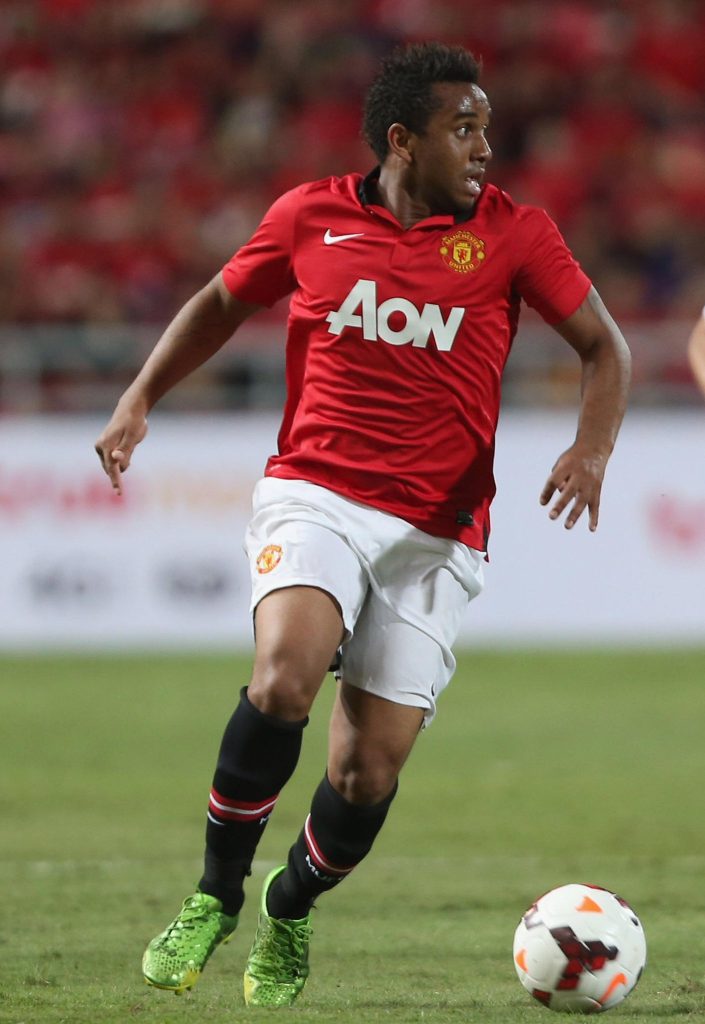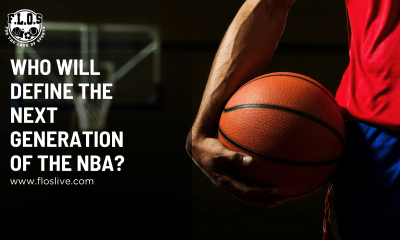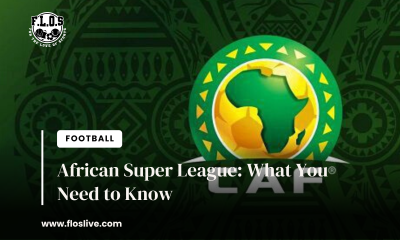
Throughout the years, the Golden Boy Award has been bestowed upon some of Europe’s most promising young talents. The prize, which was established by the Italian sports newspaper Tuttosport in 2003, has grown to become one of the most talked-about footballing honours.
Second only to the Ballon d’Or, this accolade has garnered considerable attention and interest from fans, with votes cast by elite journalists and publications across Europe.

In the recently concluded 2023 edition, Real Madrid’s Jude Bellingham claimed the Award, outshining competitors like Bayern Munich’s Jamal Musiala and Barcelona’s Alejandro Balde. Bellingham’s victory was resounding, securing an impressive 97% of the vote, a feat that matched Kylian Mbappe’s record in 2017, as reported by BR Football.
While the Golden Boy Award often serves as a reliable indicator of future success, history has shown that not all past winners have fulfilled their potential.
Notable figures like Lionel Messi and Wayne Rooney, among others, have transcended the honour to make a lasting impact on the world of football.
Nevertheless, this piece takes a closer look at five players who, despite winning the Golden Boy Award, fell short of meeting the lofty expectations set for them.
Anderson Oliveira — 2008 (Retired)
The former Manchester United midfielder stands out as the first player who struggled to establish himself at the pinnacle of football after clinching the Golden Boy Award in 2008.

Upon his arrival at Manchester United in 2007, the promising Brazilian failed to leave a lasting impact. After securing the Premier League and Champions League titles in his debut season with the club, Anderson was tipped by many to be the long-term successor to club legend Paul Scholes.
However, the 2007-08 season marked the beginning of a downturn in his United career, as persistent injury issues plagued him over the following eight years at Old Trafford.

Eventually, in 2015, Anderson permanently departed Old Trafford, returning to Brazil to play for Internacional in February 2015 and later joining Coritiba in February 2017. Subsequently, he made a move to the Turkish side Adana Demirspor in July 2018.
The Brazilian concluded his playing career at the Turkish second-division club and retired prematurely in September 2019 at the age of 31. In August 2021, he faced charges from Brazilian police for his involvement in a cryptocurrency fraud and money laundering scheme.
Alexandre Pato — 2009 (Sao Paulo)
If you were to inquire about a football player with a career characterised by “what ifs,” many fans would likely highlight Brazilian forward Alexandre Pato.
Back when he played for AC Milan, Pato captured the footballing world’s attention by winning the Golden Boy award in 2009 at the age of 20. Despite this promising start, the Brazilian forward’s career took a downturn due to persistent injuries, leading to the collapse of his European dream, and he eventually opted for a return to his native Brazil.
It appeared a bit of a fall from grace considering he had silenced the Nou Camp with a wonderful solo goal just 24 seconds into Milan’s 2-2 draw against Barcelona not too long ago — in the 2011/12 UEFA Champions League Group Stage tie.

After a loan stint at Chelsea in the 2015/16 season, which didn’t pan out as hoped, Pato found success at Villarreal. However, he opted for a move to the Chinese Super League with Tianjin Quanjian in January 2017, where he impressively scored 36 goals in 60 appearances.
In March 2019, Pato returned to his homeland, re-joining Sao Paulo, but his stint was relatively short-lived as he departed in 2020. Subsequently, he ventured into Major League Soccer (MLS) with Orlando City, winning the U.S. Open Cup, before eventually making his way back (for the 3rd time) to Sao Paulo.
Mario Balotelli — 2010 (Adana Demirspor)
Balotelli played a crucial role in Jose Mourinho’s Inter Milan side, contributing to their treble-winning campaign. In 2010, he transferred to Manchester City and later that year received the award for his outstanding performance.

Former Arsenal player Jack Wilshere secured the second spot in the rankings, but Balotelli claimed to be unaware of him. “What’s his name? Wil…? No, I don’t know him, but the next time I play against Arsenal, I will keep a close eye on him. Perhaps I can show him the Golden Boy trophy and remind him that I won it.” Balotelli stated as reported by The Guardian.
In the early stages of his career, the notorious Mario Balotelli consistently dazzled, wreaking havoc on opposing defences for Inter Milan and Manchester City. Despite being the sole Italian recipient of the Golden Boy award and the first Azzurri to win the Premier League, his career took a downturn due to off-field controversies and a decline in on-field performance.

Currently plying his trade in Turkey with Adana Demirspor, Balotelli has had stints with seven clubs across Europe, including teams in France, Italy, and Switzerland.
Paul Pogba — 2013 (Juventus)
Pogba left Manchester United for Juventus in 2012 in search of regular first-team football and his decision was validated when he secured the Golden Boy award in 2013.
During his four-year spell in Italy, he evolved into one of the world’s finest midfielders, securing four Serie A titles and two Coppas Italia.

United spent a then world-record fee of £89 million to bring him back to the club in 2016 and he spent another six frustrating years at Old Trafford despite being an instrumental member of the French team that won the 2018 World Cup.

Pogba has been beset by injuries since returning and is facing a four-year ban after being provisionally suspended for failing a drug test after allegedly testing positive for testosterone.
Isco Alarcon — 2012 (Real Betis)
Isco Alarcon was one talent who had to fight for his moment. Isco rose to prominence under Manuel Pellegrini at Malaga and fought off competition from winger Stephan El Shaarawy to win the Golden Boy Award in 2012.

His standout performances didn’t go unnoticed, attracting interest from major European clubs. In 2013, Isco made the move to Real Madrid, where he achieved remarkable success, securing three La Liga titles and five Champions League victories during his commendable nine-year stint with Los Blancos.

However, he fell out of favour at the Bernabeu and following the conclusion of the 2022/23 season he joined La Liga rivals Sevilla. After a brief and unsuccessful stint at the club, which culminated with his brawl with sporting director Ramon Verdejo. Following a challenging nine months as a free agent, Isco eventually secured a transfer to Real Betis. This move came after an initial deal to join Union Berlin collapsed at the eleventh hour. It has proved to be a revival, with the playmaker winning MVP in his first four league games for Betis.


Must See
-


Basketball
/ 3 months agoWho Will Define the Next Generation of the NBA?
We are in a new era of basketball, centered around high volume of 3-point...
By Samson Osaze -


Flos Live
/ 4 months agoFLOS’ FIVE: Unforgettable Moments from the ‘Happy Slam’ Downunder
The Australian Open, often affectionately dubbed the “Happy Slam” in the eloquent words of...
By Samson Osaze -


American Football
/ 4 months agoFLOS’ Five: Super Bowl LVIII Predictions
The 2023/24 NFL season brimmed with captivating storylines, breakout stars, struggling favourites, and unexpected...
By Samson Osaze -


Football
/ 2 years agoAfrican Super League: What You Need to Know
The President of the Confederation of African football (CAF), Dr. Patrice Motsepe announced the...






